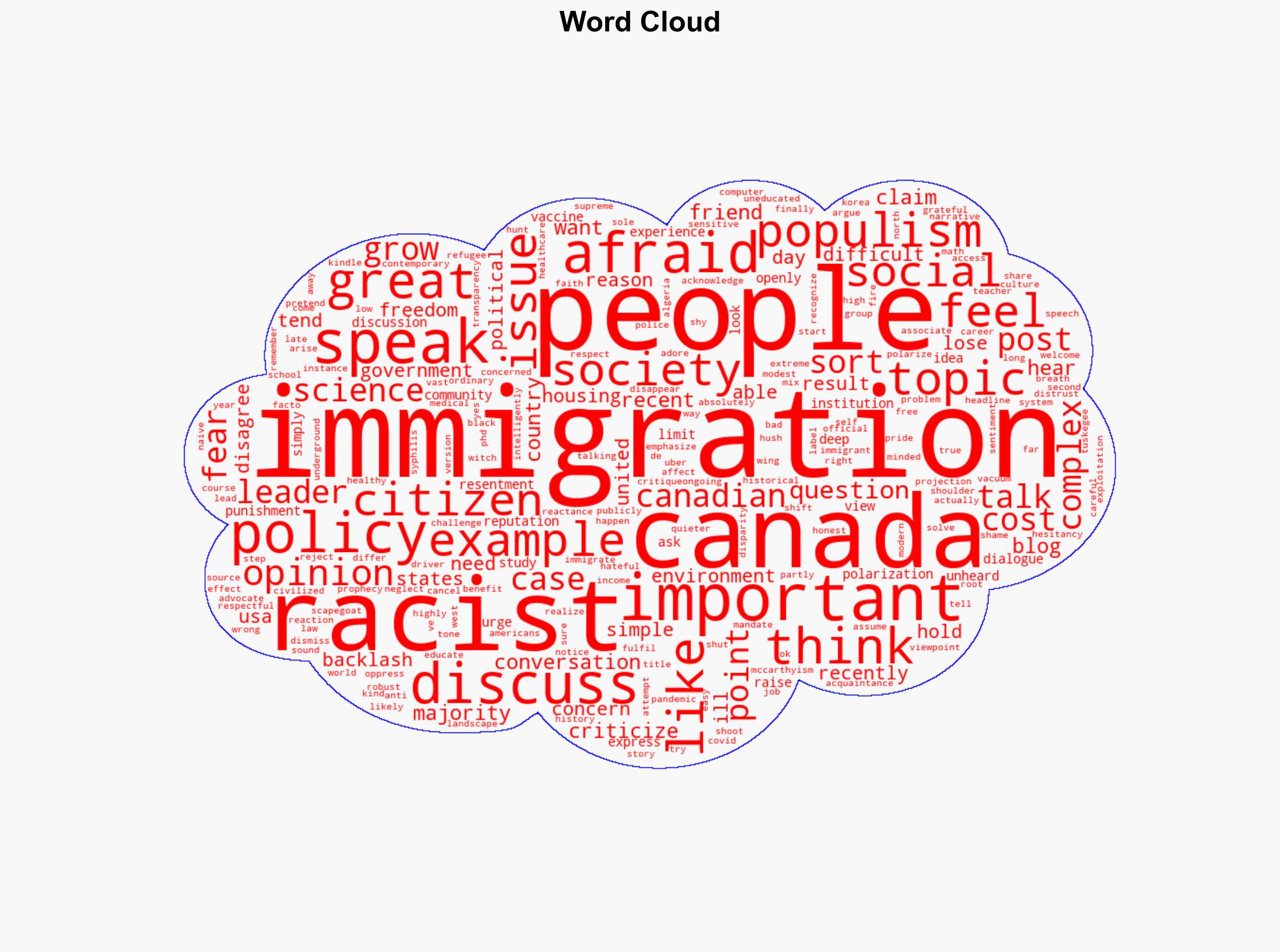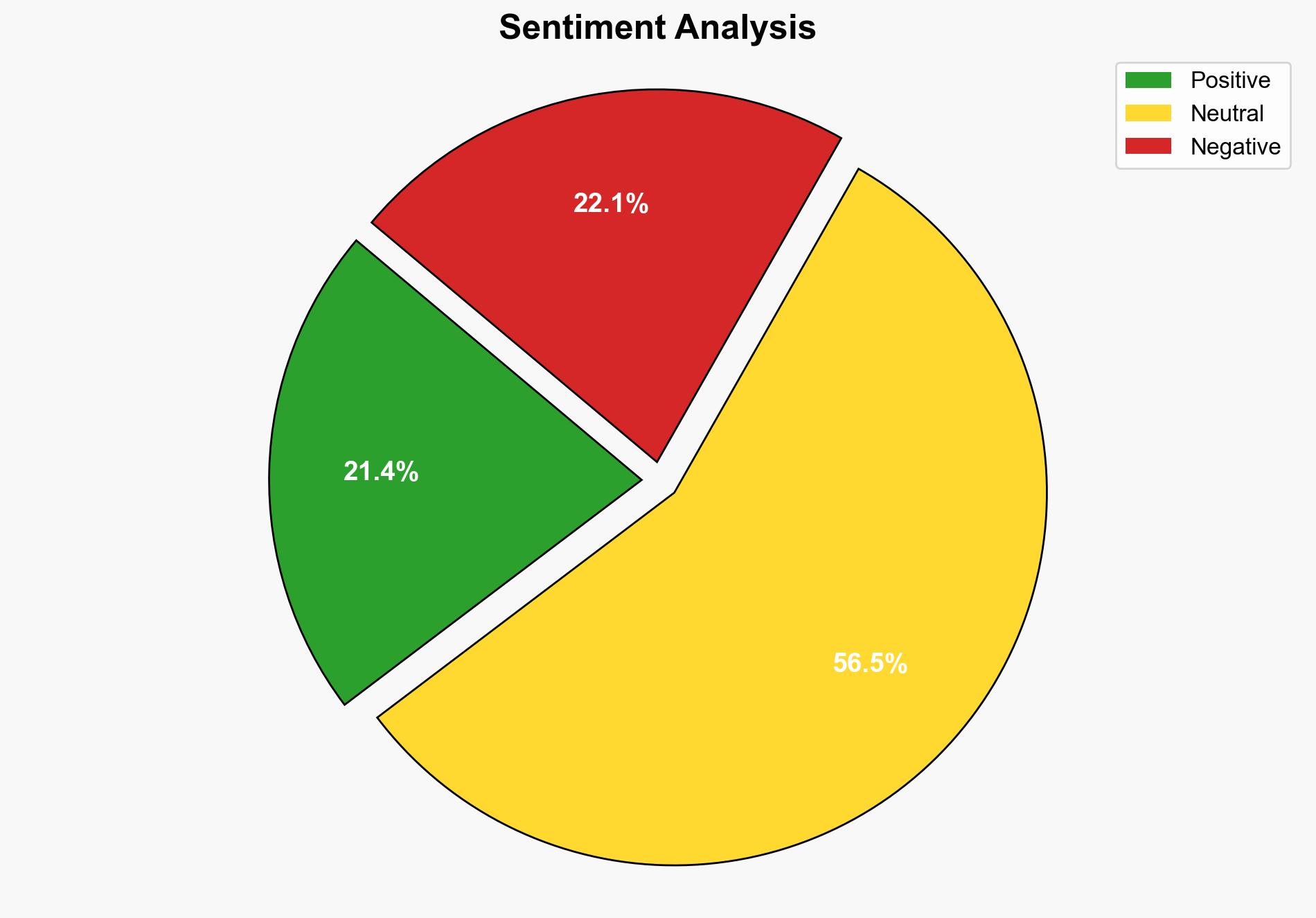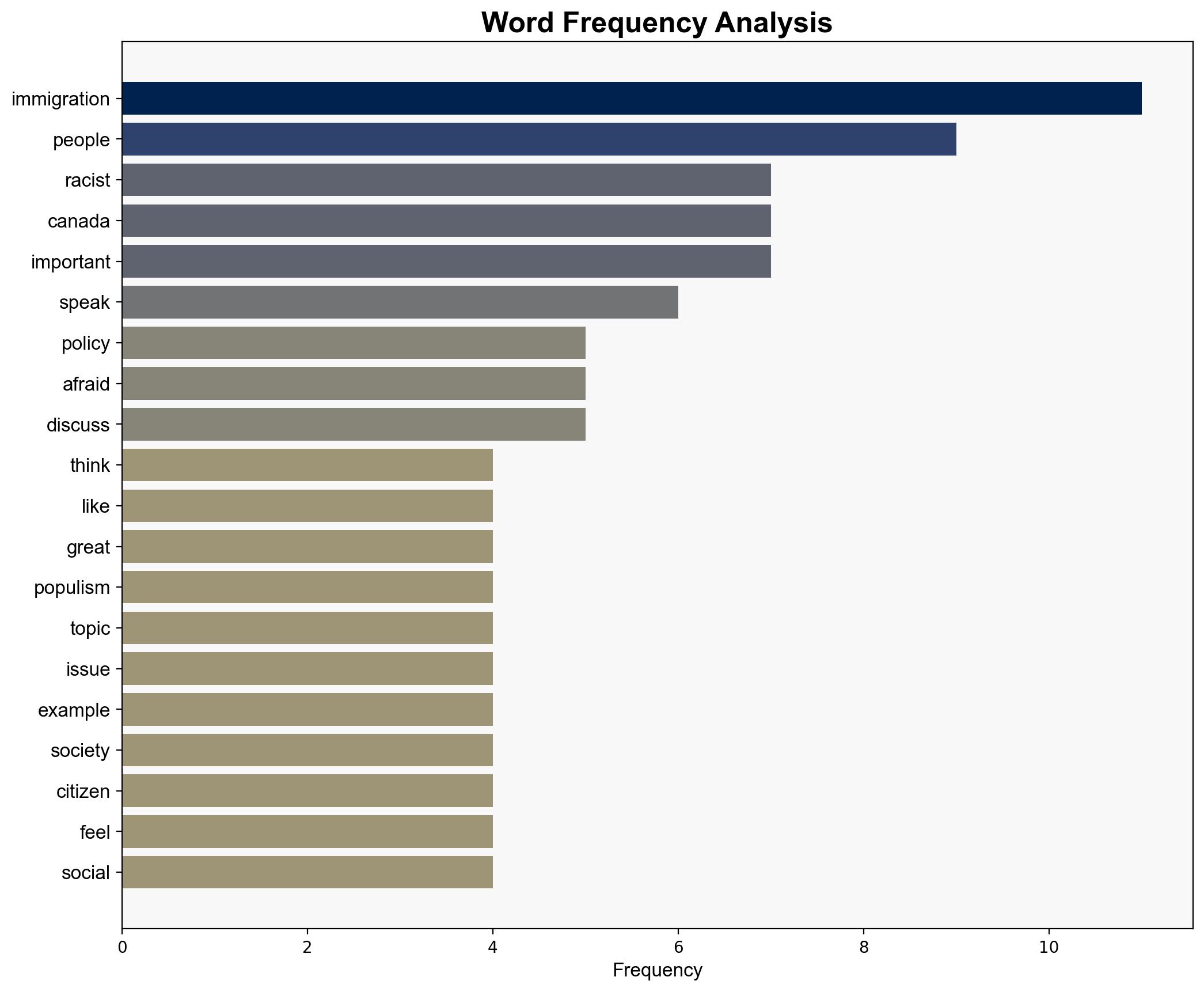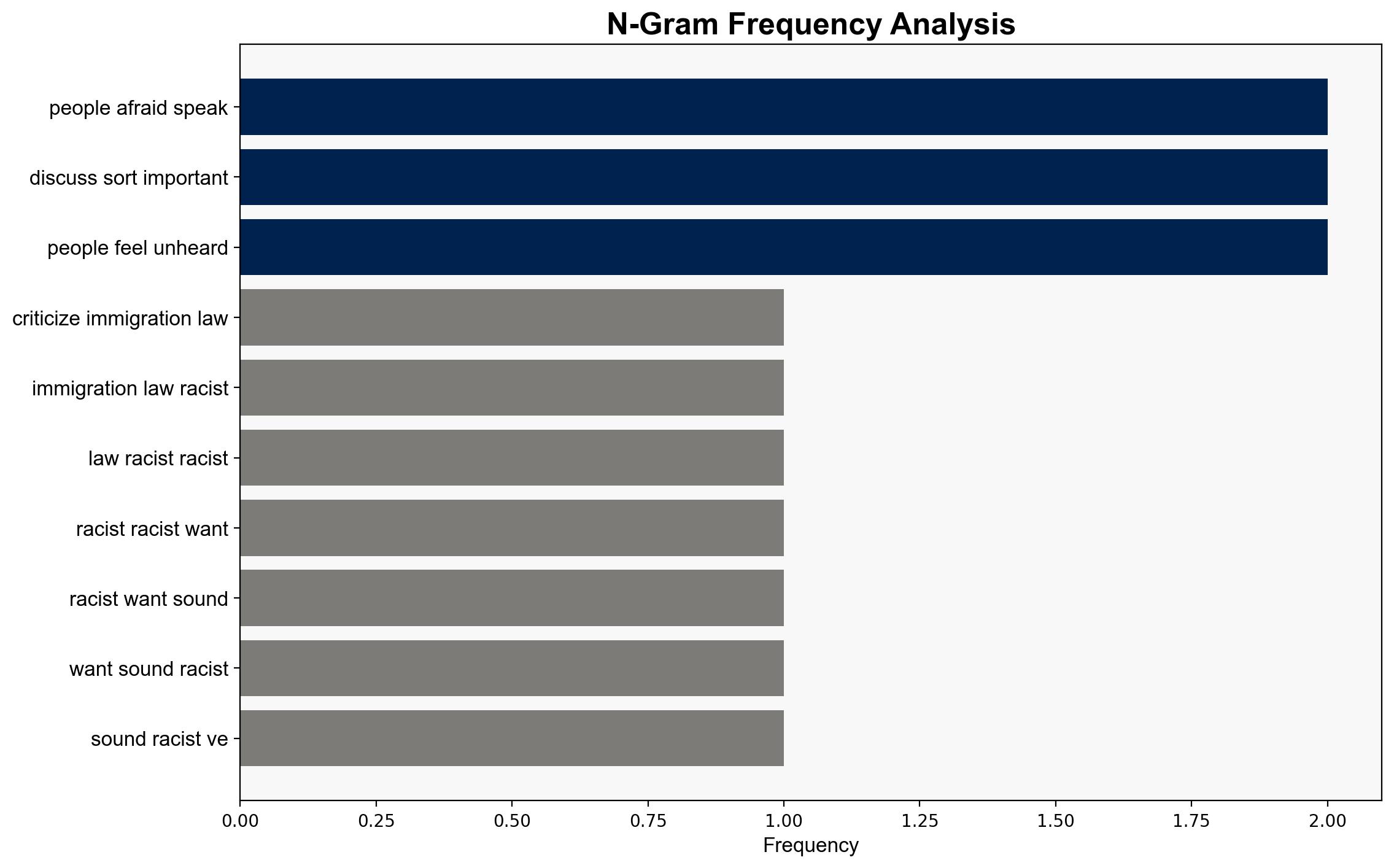Criticizing Immigration Laws Is Not Racist – Maximepeabody.com
Published on: 2025-10-19
Intelligence Report: Criticizing Immigration Laws Is Not Racist – Maximepeabody.com
1. BLUF (Bottom Line Up Front)
The analysis suggests that while criticizing immigration laws is not inherently racist, the discourse surrounding it can be perceived as such due to societal sensitivities and historical contexts. The most supported hypothesis is that open dialogue on immigration policies is necessary for a healthy society, but it must be approached with sensitivity to avoid social polarization. Confidence Level: Moderate. Recommended action is to encourage open, respectful discussions on immigration policies while promoting awareness of historical and social contexts.
2. Competing Hypotheses
1. Criticizing immigration laws is a legitimate exercise of free speech that is often mislabeled as racist due to societal sensitivities and historical contexts.
2. Criticizing immigration laws is frequently used as a cover for underlying racist sentiments, contributing to social polarization and tension.
Using ACH 2.0, the first hypothesis is better supported by the source text, which emphasizes the importance of open dialogue and the dangers of suppressing discussion. The second hypothesis is less supported as the text argues against the notion that critique is inherently racist.
3. Key Assumptions and Red Flags
– Assumption: Open dialogue will lead to better understanding and policy outcomes.
– Red Flag: The potential for dialogue to be co-opted by extremist views if not moderated.
– Blind Spot: Lack of consideration for how historical injustices may color current perceptions of immigration discussions.
4. Implications and Strategic Risks
– Social polarization could increase if discussions on immigration are not handled with care.
– Economic implications include potential impacts on labor markets and housing if immigration policies are not well-managed.
– Geopolitical risks involve strained international relations if immigration policies are perceived as discriminatory.
– Psychological risks include increased societal fear and mistrust if dialogue is suppressed.
5. Recommendations and Outlook
- Encourage educational initiatives to foster understanding of immigration issues and historical contexts.
- Promote platforms for moderated discussions to prevent extremist narratives from dominating the discourse.
- Scenario Projections:
- Best Case: Constructive dialogue leads to balanced immigration policies that are widely accepted.
- Worst Case: Suppression of dialogue leads to increased social unrest and polarization.
- Most Likely: Gradual improvement in discourse with periodic flare-ups of tension.
6. Key Individuals and Entities
– Maxime Peabody (author of the blog post)
7. Thematic Tags
national security threats, social cohesion, immigration policy, free speech





